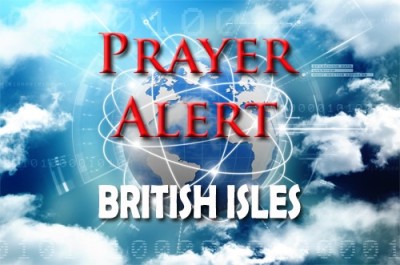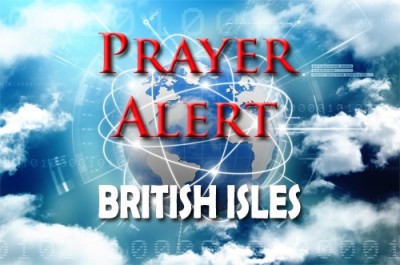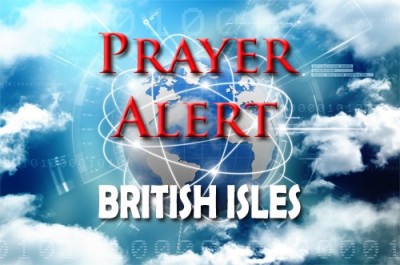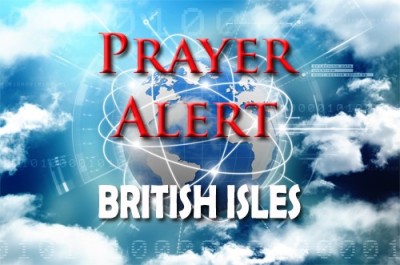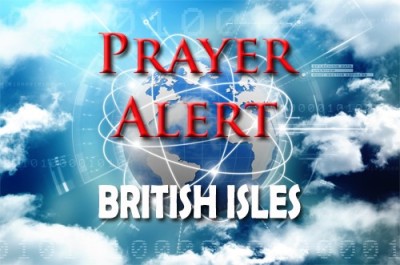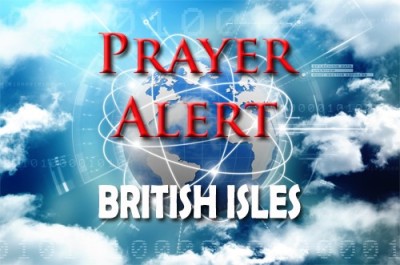Ukraine: the Gospel is ‘unstoppable’
05 Jun 2025Evangelist David Karcha has said that even in the midst of war, Ukraine is seeing a profound spiritual awakening. He has described how churches have become sanctuaries of hope, drawing countless people to Christ. When Russia invaded in 2022, Ukrainian evangelicals chose not to flee but to remain, share in the suffering, and witness through faith. Karcha declared that while the Gospel is powerful in peace, it becomes ‘unstoppable’ in war. Across the country, churches are seeing thousands profess faith and be baptised, driven by deep spiritual hunger. Their acts of faith have created a unified movement no war can halt. Evangelicals minister on the frontlines, in hospitals, to widows, orphans, and the broken. The church serves not only physical needs but also hearts seeking hope. Thanking European churches for their love and support, Karcha says, ‘We listen. We pray. We help. Then, when we see how we can help and what can be gone, we speak Jesus.’
Pop and hip-hop artist Bodie has shared a powerful testimony of divine healing, describing how God restored his wife Royale Kuljian’s hearing after doctors had deemed it irreparable. Her eardrum had been completely destroyed, with doctors preparing for reconstructive surgery. But after attending church and receiving prayer, she experienced immediate healing. ‘This girl at church was praying over me by my bad ear, and suddenly I could hear her’, Royale recalled. Doctors had previously found no eardrum at all, but post-healing examinations now show her hearing is ‘perfectly normal.’ Medical professionals remain baffled, but Bodie and Royale are calling it what they believe it is - a miracle. Bodie described the event as a ‘tangible’ and ‘pretty cool’ sign of God’s faithfulness, saying it has been deeply meaningful to watch Him continually give him fresh vision in both life and career.
Reeves announces £15bn for transport projects
05 Jun 2025Rachel Reeves has unveiled £15.6 billion in transport investment across England’s regions, marking a major shift in infrastructure funding and regional priorities. Targeting areas long considered underfunded, the funding will support tram, train, and bus developments in the Midlands, the North, and the West Country. Greater Manchester and the West Midlands will receive over £2 billion each for tram expansions, while £2.1 billion will launch the West Yorkshire Mass Transit system. There are also major sums for Liverpool, the North East, the East Midlands, Tees Valley, and South Yorkshire. This investment marks Reeves' first open move away from the stringent rules in the Treasury’s traditional Green Book rules, which have long favoured London. Though some projects were originally introduced under the Conservatives, Labour has reviewed and restructured them. While regional leaders praised the announcements, critics called for tangible results rather than mere promises.
Rachel Reeves has announced that more pensioners will qualify for winter fuel payments this year, following the backlash over Labour’s 2024 decision to cut the benefit for most retirees. While she confirmed the means-test threshold will rise, she did not specify by how much, and at Prime Minister’s Questions, Keir Starmer also failed to clarify how many of the ten million affected pensioners will regain eligibility. Labour’s original decision to means-test the payment reduced eligibility from 11.4 million to just 1.5 million, limiting it to pensioners receiving benefits like Pension Credit. The move, intended to save £1.5 billion annually, was part of an effort to address what Labour calls a £22 billion fiscal gap left by the previous government. Critics, including Kemi Badenoch, accused Labour of lacking preparation and transparency. Reeves insisted the government remains committed to easing winter costs for vulnerable seniors but acknowledged that specifics are still being finalised.
Ahead of a final Westminster vote on assisted suicide legislation set for 20 June, leading Christian groups have called for a national day of prayer on 11 June. They are urging believers across the UK to pray against what they consider dangerous proposals. Assisted suicide bills are currently advancing in both Westminster and the Scottish parliament, although it seems growing numbers of MPs who previously supported them may now abstain or vote against. Simon Calvert of the Christian Institute said that ‘no safeguards can make these bills safe’, warning that the legislation effectively facilitates suicide under the guise of compassion. He called for prayer to open politicians’ eyes to the reality and risk posed to the vulnerable. MP Brian Mathew, who once supported the bill, now voices serious concerns, particularly the pressure it could place on terminally ill individuals who fear becoming a burden. Christian leaders are praying for courage, compassion, and clarity among lawmakers.
Starting in September 2026, all children in England whose parents receive Universal Credit will be eligible for free school meals, regardless of income. This change, announced by the Government, is expected to benefit around 500,000 more pupils and save families up to £500 a year. Education secretary Bridget Phillipson said the initiative will help lift 100,000 children out of poverty, though some analysts cast doubt on that figure. Currently, free school meal eligibility is limited to families earning under £7,400 annually. The reform marks a major shift and is part of a broader strategy to address child poverty. However, the Government faces pressure to go further - especially regarding the two-child benefit cap. While many charities and education leaders welcomed the move as a vital step, they stressed the need for automatic enrolment and additional support to ensure no child goes hungry. £1 billion has been set aside to fund the change up to 2029, with further announcements expected in Rachel Reeves’s forthcoming spending review.
A court has heard that in March 2024 arsonists acting on behalf of the Russian Wagner Group caused £1 million in damage by setting fire to a warehouse in Leyton, east London,which supplied StarLink satellite equipment to Ukraine. The attack, livestreamed via FaceTime, was orchestrated by Dylan Earl, 20, and Jake Reeves, 23, who have admitted to aggravated arson and National Security Act offences. Four other men are currently on trial, accused of carrying out the attack after being recruited for the plot. Prosecutors described the crime as deliberate and calculated, driven by foreign influence, financial motives, and ideological support for Russia. The warehouse, involved in humanitarian aid to Ukraine, was targeted specifically for its logistical connection to the war effort. Prosecutors also revealed that Earl and Reeves plotted further attacks in Mayfair, including arson and a kidnapping attempt, to serve Wagner Group interests. The court proceedings continue, with some defendants denying the charges.
Sellafield ‘could continue leaking till 2050s’
05 Jun 2025The UK’s largest nuclear site, Sellafield in Cumbria, may continue leaking radioactive water into the ground until the 2050s, a decade later than previously expected, according to a recent report. The leak stems from the Magnox Swarf Storage Silo (MSSS), described by the Nuclear Decommissioning Authority (NDA) as ‘the most hazardous building in the UK’. The MSSS has been leaking since 2018; the report warned that delays and missed targets in cleaning up the site pose ‘intolerable risks’ and could prolong the danger. It also highlighted cost overruns, slow progress, and cultural issues at Sellafield, urging the Government to treat the situation with greater urgency. Though the NDA claims the leak is contained and not a threat to the public, MPs warn that the site’s condition is a present-day hazard, not a distant concern. Plans for a permanent underground nuclear waste storage facility remain years from completion.


